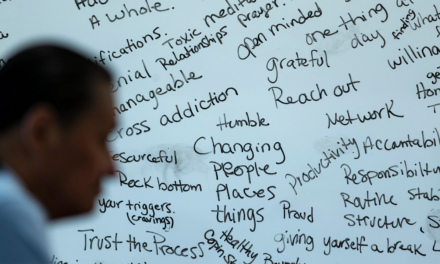Seems like we’re seeing more stories about traumatic experiences at programs for troubled youth — programs that often date from the prime years of the nation’s War on Drugs. The programs themselves are still around and many are prospering. As a class, the “Troubled Teen Industry” (TTI) boasts that approximately 120,000 youth take part every year.
I’m confident some are effective in achieving their stated objectives, but it’s obvious that plenty of others are not — as evidenced by stories such as this one:
I survived a wilderness camp: ‘It’s not necessary to break a person’s will’
In their early days, such programs often integrated a ‘tough love’ philosophy that emphasized discipline and consequences for offending behavior. The goal was to make use of the peer environment to reinforce new behavior and discourage noncompliance. The hope was that the changed behavior would persist once the youth left the program.
“You guys patch ’em up,” one advocate claimed during a talk with my treatment staff. “We fix them.”
Often against their wishes, it appears. I can’t recall a time when these programs weren’t controversial. Periodic scandals just fed the controversy. One particularly painful incident involved the use of unsafe techniques to physically restrain youth. In this instance, staff members held the kid on the ground, face down, and sat on him to discourage further resistance.
He died. It’s not totally unlike the ‘knee on the neck’ tactic used by some police departments. There’ve been deaths from that, as well.
It was all part of a larger attempt to control the youth’s behavior by physical means. It’s a practice that’s ripe for abuse if not carefully monitored. A senior staff member at one program told me that though his staff were instructed never to put their hands on a youth unless he or she was combative, “it isn’t that hard to provoke them into fighting.” I can imagine. Once the fight is in progress, I suppose staff could be as physical as they wanted.
I doubt ‘tough love’ was ever meant to be that tough. It’s all in how the programs interpret it. Another openly encouraged parents to nail the windows shut in the child’s bedroom, to prevent midnight escapades. Wonder how the fire marshal felt about that.
Anyway, as a result of these and other incidents, there followed a general clampdown on any kind of physical restraint and the use of seclusion. That was long overdue. Now it’s banned altogether in some states, with rare exceptions: When there’s immediate danger of harm to the youth or someone else, for example. Even then, it must be closely monitored and carefully documented.
Nonetheless, the controversy continues. This came from Paris Hilton (yes, that Paris Hilton), who claims she was sexually abused at a ‘training school’ when she was a troubled teenager. Traumatized as a result. I’ll let her tell it:
My own conclusion: though modifying problem behavior remains a desirable goal, programs such as these are not always the best way to achieve it.
And based on evidence, sometimes result in a youth who is far more troubled than before.













